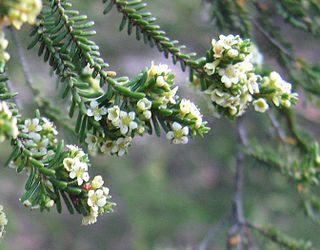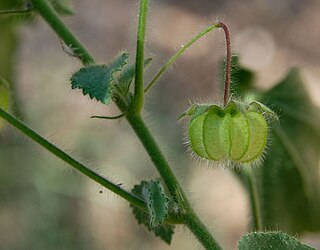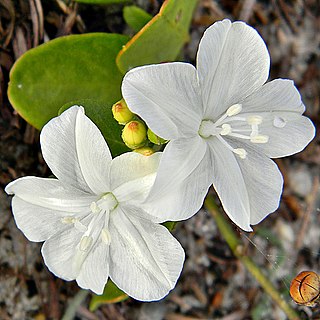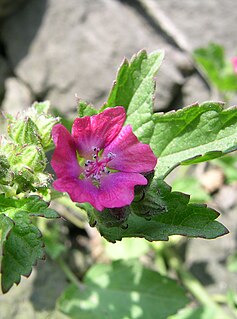
Tate is an institution that houses, in a network of four art galleries, the United Kingdom's national collection of British art, and international modern and contemporary art. It is not a government institution, but its main sponsor is the UK Department for Digital, Culture, Media and Sport.
Tate & Lyle PLC is a British-headquartered, global supplier of food and beverage ingredients to industrial markets. It was originally a sugar refining business, but from the 1970s it began to diversify, eventually divesting its sugar business in 2010. It specializes in turning raw materials such as corn and tapioca into ingredients that add taste, texture, and nutrients to food and beverages. It is listed on the London Stock Exchange and is a constituent of the FTSE 250 Index.

Micromyrtus is a genus of shrubs, in the family Myrtaceae, described as a genus in 1865. The entire genus is endemic to Australia.

Herissantia is a small genus of flowering plants in the mallow family sometimes referred to as bladder mallows. These are five species of annual and perennial herbs with trailing stems and bladderlike fruits. They are native to the tropical and warm temperate Americas. The most widely distributed species is Herissantia crispa, which can be found on other continents as an introduced species.

Tate Britain, known from 1897 to 1932 as the National Gallery of British Art and from 1932 to 2000 as the Tate Gallery, is an art museum on Millbank in the City of Westminster in London. It is part of the Tate network of galleries in England, with Tate Modern, Tate Liverpool and Tate St Ives. It is the oldest gallery in the network, having opened in 1897. It houses a substantial collection of the art of the United Kingdom since Tudor times, and in particular has large holdings of the works of J. M. W. Turner, who bequeathed all his own collection to the nation. It is one of the largest museums in the country.

Hibisceae is a tribe of flowering plants in the mallow family Malvaceae, subfamily Malvoideae.

Jacquemontia is a genus of plants in the morning glory family Convolvulaceae. Species in this genus are commonly known as clustervine.

Fuertesimalva is a genus of flowering plants in the mallow family Malvaceae, native to Mexico, Venezuela, Columbia, Ecuador, Bolivia, Peru and Argentina. Most species in this genus were originally placed in Urocarpidium.
Urocarpidium is a genus of flowering plants in the mallow family Malvaceae, native to the Andes mountains of South America. Many species originally placed in this genus were moved to Fuertesimalva in 1996.

Corynabutilon is a genus of flowering plants in the family Malvaceae, native to southern Chile and Argentina. They are shrubs or small trees.

Acaulimalva is a genus of plants in the family Malvaceae. It contains 21 species that are found in South America.

Ptilotus schwartzii is a grass-like plant in the Amaranthaceae family.
Woodianthus is a genus of flowering plants belonging to the family Malvaceae.
Tarasa is a genus of flowering plants belonging to the family Malvaceae.
Bakeridesia is a genus of flowering plants belonging to the family Malvaceae.
Batesimalva is a genus of flowering plants belonging to the family Malvaceae.
Bordasia is a genus of flowering plants belonging to the family Malvaceae.
Calyculogygas is a genus of flowering plants belonging to the family Malvaceae.
Calyptraemalva is a genus of flowering plants belonging to the family Malvaceae.









